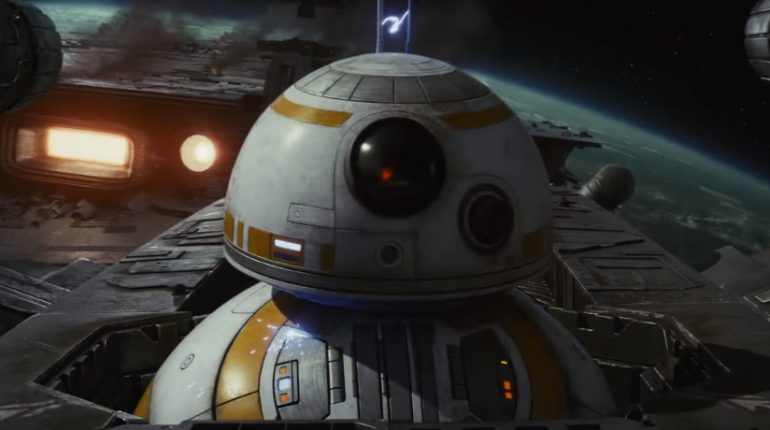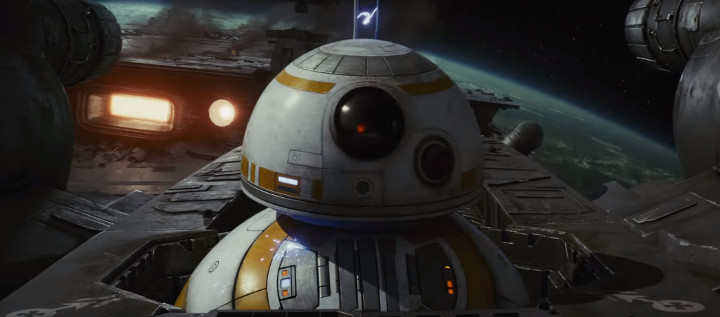
There’s a razor-thin membrane between the reality presented in the Star Wars movies and our current reality. But one of the reasons the series continues to captivate our imaginations so thoroughly is that the films have always been very, very good at maintaining the integrity of that membrane.
But sometimes an anachronism crops up — some piece of evidence that reminds us the entire Star Wars universe has merely sprung forth from ours — and that membrane is punctured. We are allowed to peer behind the curtain and our disbelief becomes harder to suspend.
The Last Jedi has several of these moments — more than I would have expected from director Rian Johnson — and I would argue that they’re distracting enough to diminish what is otherwise a pretty damn good Star Wars movie.
Before we continue, I must point out that there will be some mild-to-moderate spoilers ahead. Proceed beyond this point at your own risk.
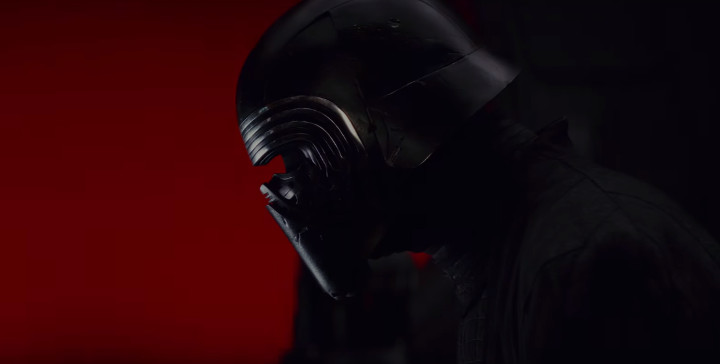
The Merriam-Webster Dictionary defines the word anachronism as such:
an error in chronology; especially : a chronological misplacing of persons, events, objects, or customs in regard to each other
Typically, the term is reserved for something that’s out of place in time, such as a World War II film portraying a character who makes a reference to Die Hard. Since Star Wars is supposedly set “a long time ago in a galaxy far, far away,” I think it’s fair to use the term to describe anything in the Star Wars universe that draws a clear connection to our current world and our culture.
Note that this isn’t the same thing as a plot hole; it’s essentially a reference to something that would be impossible for a character in the Star Wars universe to be aware of.
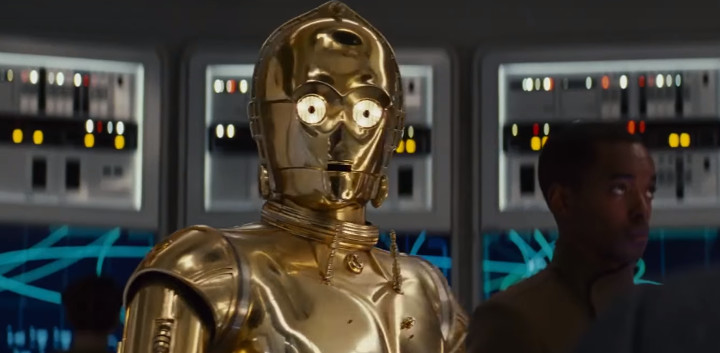
For example, at some point during The Last Jedi, C-3PO exclaims, “Vive la révolution!” This is a clear reference to the French Revolution, which took place in France in 1789 to 1799. How would C-3PO know about this, or even know enough to reference it?
I’ve always liked to think that “a long time ago” might have been thousands — or even millions — of years ago. Is C-3PO implying that it’s actually less than that? Does this mean The Last Jedi take place at some point after 1789, and, even stranger, that some lifeforms in the Star Wars universe have become somehow aware of it?
It’s distracting, because if you know anything about the phrase, you’re forced to ask yourself these questions. And pondering this takes you completely out of the movie’s story.
Now, I’m going to give C-3PO a pass here, albeit an implausible one. Since C-3PO is “fluent in over six million forms of communication,” perhaps modern (or 18th-Century, at least) French is one of them?
But it could be more complex than that. We can assume the characters in Star Wars don’t actually speak modern English, but what’s called Galactic Basic Standard. We hear them speak English because we’re essentially experiencing a “translated” work. This also suggests that when we hear various accents in the movies, we’re actually hearing an audio representation of an entirely different accent from a different region that’s been applied to Galactic Basic Standard. It’s essentially an audio metaphor.
So in this universe, perhaps French is an audio metaphor for some other language, in which some other revolution took place, and that’s what C-3PO is referencing. I have to admit, though, I find that to be a hell of a stretch.
The gag that has C-3PO saying this line isn’t even a good one. Cutting it would have made The Last Jedi a better movie.
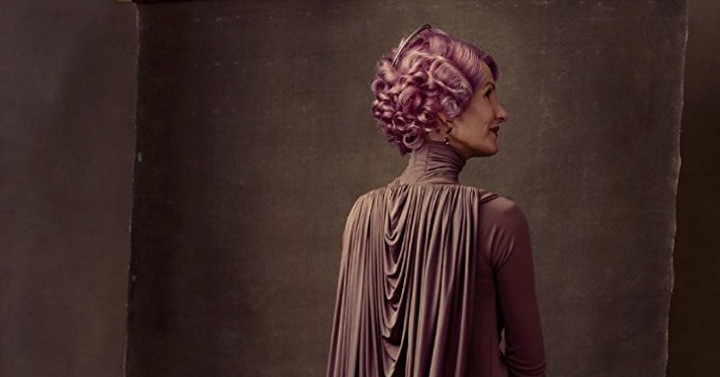
As she’s anticipating a move that will potentially save the Resistance, Amilyn Holdo says, “Godspeed.” The term “godspeed” comes from Middle English and essentially means, “May God help you prosper.” In a universe where the concept of God as a singular proper noun doesn’t really exist, this seems off to me.
This could have easily been changed to something about the Force. Sure, “May the Force be with you” was already used earlier in Holdo and Leia’s awkward dialogue, which would have made it less potent here. But even so, something else — anything else — would have been great here.
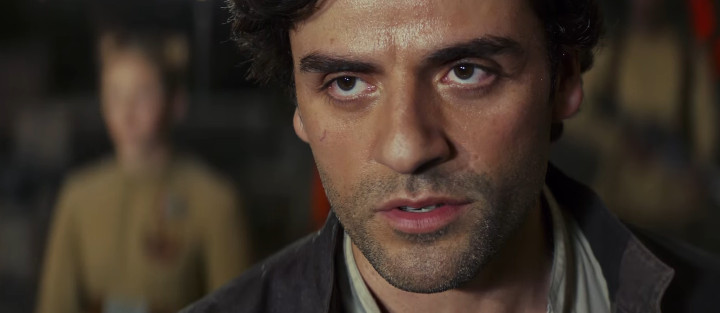
In the beginning of The Last Jedi, Poe Dameron taunts General Hux by pretending to put him on hold.
But wait, does the hold feature exist in the Star Wars universe? Since when? Is it a thing that’s just on their comlinks, or do they actually have some sort of phones that we’ve never seen before?
This one drives me nuts because it could have easily been changed to something more Star Wars-y. This is a universe that brought us blue milk and nerf herders and gundarks and a place called Anchorhead where you can get power converters (which are things that are apparently a lot more fun than power converters on Earth). Surely Rian Johnson and his team could have come up with something better than “on hold.”
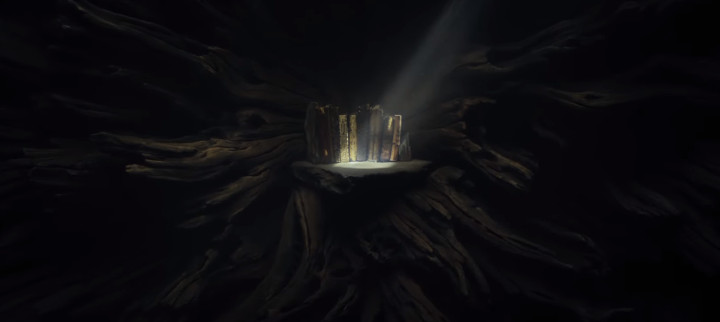
During Yoda’s short appearance, he utters the phrase “Page-turners, they are not.” This is a reference to the Jedi books, which are kept on Ahch-To where Luke has exiled himself.
I’m willing to accept that these books are thousands — perhaps tens of thousands — of years old. They come from an era before the Star Wars tech we know and love would have existed. But by the point The Last Jedi takes place, the whole idea of the paper book seems to have long been abandoned. The Clone Wars era is a good, what, 60 years earlier? Even in the Clone Wars era the Jedi were storing their data on Holocrons and glowing blue slabs of data. So the idea of “turning a page” is a pretty archaic one, and it’s unlikely that “page-turner” would have been a common expression in the Star Wars universe. Would Luke even know it?
Of course, you could argue that Yoda was over 900 years old when he died, and that thirty-some-odd years have passed since Return of the Jedi. Yoda’s knowledge and vocabulary would stretch back for a millennium. It’s possible that Yoda would have grown up in an era where paper books — and in turn the phrase “page-turner” — would have been common things.
But still, this could have been easily revised to something like, “Compelling entertainment, they are not.” Entertainment does exist in this universe, as does the concept of being compelled, so this is a small change that would have improved that scene (which, to be honest, might have been my favorite scene in The Last Jedi).
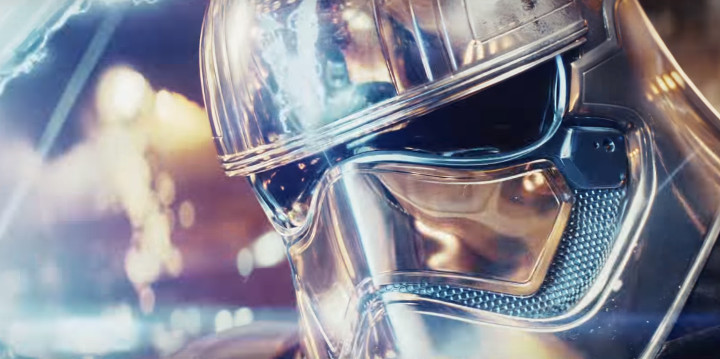
I admit that this last one is a bit of a stretch. While they’re battling each other, Finn refers to Captain Phasma as “Chrome Dome.” It’s hard to track the origin of this phrase, but it seems to come from the 1940s or 1950s as a slang term for a military haircut or someone who is completely bald. It’s a reference to the shiny properties of chromium. (It’s also the name of a character in Teenage Mutant Ninja Turtles.)
Now, chromium actually does exist in the Star Wars universe, and it is used to coat Phasma’s suit. (This particular haul of chromium, they say, was harvested from a yacht belonging to Palpatine.) You could easily argue that this is what Finn is referencing here, and that explanation actually works without breaking established lore.
I should also point out that John Williams composed a track called “Chrome Dome” for The Last Jedi soundtrack.
But I’m going to be totally nitpicky and point out that chromium actually didn’t exist in this universe until The Force Awakens. So if you want to place blame, I guess this one is on JJ Abrams, not Rian Johnson.
Now, you could easily argue that Star Wars hasn’t remained completely free of anachronisms in the past, and you’d be absolutely right. Obi-Wan Kenobi is known to use the expression “dime-a-dozen” from time to time, and Han Solo says, “Then I’ll see you in Hell!” in The Empire Strikes Back, right before he rides his tauntaun off to rescue Luke Skywalker. (It’s the only hint the movies have ever given that there might be some kind of afterlife for non-Jedi.)
But we gave Empire a pass because it’s the best Star Wars movie ever made, and very few of us are willing to argue that the Prequels are well-written masterpieces of film. Besides, StarWars.com’s Clone Wars Trivia Gallery tries to justify the “dime-a-dozen” usage with this explanation:
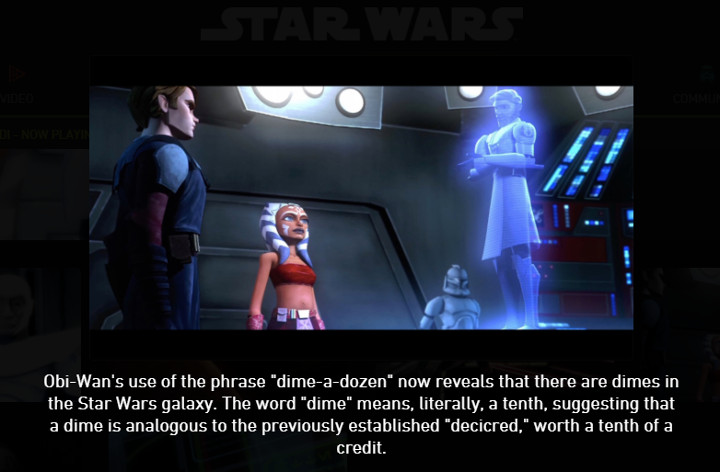
So yes, sometimes Star Wars makes mistakes. But I’m astounded at how many “godspeed” lines there are in The Last Jedi that could have instead been “nerf herder” lines. And this absolutely diminishes the believability of this film’s universe. In fact, I would argue that this might actually be the film’s biggest yet easiest-to-fix flaw.
